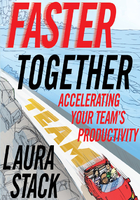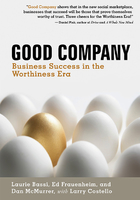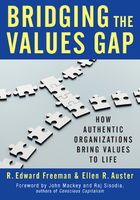Only Na?ve People Change the World
Not much happens without a dream. A dream is
never enough, but for something good to happen
the dream must be there first.
Robert Greenleaf
Rex Weyler is in his sixties now, but he is showing me a picture of himself in his twenties. In the black-and-white photograph, he looks an awful lot like many of the people I went to university with during the 1970s—he has long, jet black hair tied in a ponytail as he sits with a camera in a rubber Zodiac boat with a large fishing vessel dead ahead.
He is taking me back to a time almost forty years ago when he knows for sure that his stepping up, along with others, helped change the course of history. His story reads like a modern David and Goliath tale and helps illustrate an important principle: if you want to step up and change things, first you have to believe you can. Again and again as I interviewed people for this book, I was struck by the fact that almost everyone who stepped up and changed things had an unrelenting belief in the possibility of change, even when the odds seemed against it. Even if others told them things would never change, they chose a different path.
To put Rex's story in perspective, we have to go back to the late 1960s and early 1970s. At that time, there was a growing protest movement all over the world, with the prime areas of focus being peace and civil rights. The women's movement was in full force, and growing numbers of people were standing up and getting their voices heard, often for the first time. The environmental movement on the other hand was in its infancy, with most people focused on the legitimate concerns of people rather than the plight of the planet. Rex muses, “At the time progressive people were mostly focused on people issues, but some people were just starting to see that the ultimate social justice issue was the earth itself. What would it matter if we achieved social justice but ruined the planet?”
One of the most visible environmental issues at the time was the hunting of whales. By the early 1970s, whales had been hunted to the point where only about 5–10 percent of their historic populations remained. Many whale species were on the brink of extinction, and the Atlantic Gray Whale was already gone. A Canadian named Farley Mowat had helped catalyze the issue when he wrote a book titled A Whale for the Killing. It told the story of a whale caught in a cove in Newfoundland and how people came down and shot at the whale from the shore. “It was the reverse of the Moby Dick story,” Rex said. “It is the helpless whale being swallowed up by the people.”
Whales were pretty much being hunted for products that could be created synthetically. In other words, the whale hunt was unnecessary. At the same time, a growing body of research showed that whales were actually incredibly intelligent mammals, rather than dumb, uncaring monsters like the whales found in Herman Melville's Moby Dick. Much later, we would discover that not only is their brain-to-body-mass larger than that of humans, but that the most-developed part of their brain is the limbic, or emotional, part. Humans were systematically hunting down intelligent, sensitive fellow mammals for no real benefit. Something had to be done.
Rex Weyler and a somewhat disorganized band of hippies and journalists hatched an idea, an idea he admits was a bit crazy. The idea was to go out and confront a whaling ship in the middle of the Pacific Ocean and show the world what was happening. Being journalists, they believed that if you could change the story you could change the world. There were others trying to save the whales but getting no real traction.
In the days before global positioning systems and before CNN, finding whalers was no easy task. After months of frustration on the open ocean, they spotted part of the Russian whaling fleet on the high seas. The idea was simple—catch the whalers in the act. Capture the whale hunt on camera for what it really was. Rex snapped a picture of a beautiful but bloodied whale being harpooned and dragged onto the deck of the vessel. The pictures he and the others took and the story of these not-so-mighty few confronting the Russian whaling fleet appeared in most of the newspapers and magazines across the free world. The story was featured on the evening news across America, including coverage by the well-respected Walter Cronkite at CBS. The story created what Rex calls a mind bomb around the world.
“It didn't hurt that we caught the Russians just a few hundred miles off the coast of California during the cold war,” he told me. “But what people responded to most was the idea of people stepping up for what they believed in. Today, the idea of average citizens standing up for larger forces has become commonplace, but at the time standing up for another species in such a bold way was virtually unheard of.”
The mind bomb did not stop whaling in its tracks, but it raised public awareness about the whale hunt to a new level. Over the next year, others worldwide began to demand that the hunt end. Rex said, “A number of things happen when you take a stand. First it clarifies your own morality, because if you are going to take a stand it forces you to make the case. Second, when you step up, it inspires others, because people are typically better at following than leading. Now people have permission to do so. Immediately, people begin to stand up because they know they won't be alone.”
It took several years before the international whaling ban was finally signed and the mass hunting of whales stopped, but if you want to know what began the worldwide movement in earnest—the initial step up that galvanized public opinion about the whales—it can be found in that picture hanging on Rex Weyler's office wall, a black-and-white symbol of what happens when you think you can change things.
Today, Rex's face has aged, but his youthful idealism still radiates when he talks about the issues of the day. He was a pioneer at the organization called Greenpeace, which had a huge impact on saving the whales. You may love the Greenpeace tactics or find them offensive, but if you want to hear all about it, read Rex's 2004 book, Greenpeace: How a Group of Ecologists, Journalists and Visionaries Changed the World (Raincoast Books). Whales are still hunted on a limited basis in the guise of research, but populations have rebounded. People are still stepping up to make sure whales continue to thrive. Their populations are threatened now by climate change and toxicity in the ocean environment. As Rex reminded me in our interview, “The bad guys only have to win once.”
Reflecting back almost four decades after the mind bomb, I asked the now gray-haired Rex Weyler how it felt to be in his sixties but to know that, at one point in his life, he helped change the course of history.
“Well,” he mused, “mostly I think of how crazy we were. I mean, they could just as easily have harpooned us! This is before CNN and twenty-four hour news; we had no news crews tagging alongside. We were really quite na?ve.”
The moment he said that, I had my own mind bomb: Maybe only na?ve people ever change the world.
Everything Begins with a Vision
The first step to stepping up is to be na?ve enough to think you can change things. This may seem so obvious as not to merit mention, but having a belief that it matters if we step up is critical. Robert Greenleaf, who popularized a leadership philosophy called Servant Leadership, once said, “Not much happens without a dream. A dream is never enough, but for something good to happen the dream must be there first.” The leaders I interviewed for this book echoed those sentiments.
As I asked them about people who stepped up and created change, they often talked about people having a vision of how things could be better and believing they could achieve that vision. Don Knauss is the CEO of Clorox and a former officer in the U.S. Marines who radiates enthusiasm. He told me that “stepping up begins with the belief that you can change things.” As he reflected on his own experiences of those who stepped up, he talked about one key being a prevailing optimism, that is, a pervasive belief that if you stay with it you will prevail.
This prevailing optimism drives people to step up most every day on much lower-profile issues than stopping the whale hunt. Bob Peter is the president of the LCBO, a liquor retailer in Canada and the former president of the Bay, Canada's leading department store. In his many years of leadership he said that again and again he has noticed that the people who step up and make things better have “a vision of how things could be better and an almost little-dog-on-a-bone quality about pursuing that vision.” He told me about Nancy Cardinal, who inherited the marketing department at the Liquor Board of Ontario with just three people in it and a brand that was basically just a “building with booze in it.”
But Nancy had a vision that a government-run liquor store chain could be a world-class retailer. She helped craft a vision to reimagine the stores, started a food and wine magazine, created signature vintage stores in certain neighborhoods, pushed for wider aisles and better stores, and spearheaded an effort to double the number of female customers. Mostly, she had that same na?ve vision of the future that Weyler had of a world with no whale hunting. Where some saw just a government liquor store, she and others at the organization saw a leading retailer on par with the best liquor stores anywhere. Today many of the LCBO stores look more like high-end retail shops than a government liquor store. Much of the credit for the transformation belongs to Nancy, but many others who did not accept the prevailing belief that being a government agency meant being a second-rate retail operation also contributed.
If you want to step up and change things, you first have to believe you can. You have to imagine a positive future and believe that you are someone who can do something about creating that future.
Transforming Inner City Schools in the United States
Earlier, I talked about Mike Feinberg and Dave Levin who joined the Teach for America program and were placed at two inner city schools in Houston, Texas, starting in August 1992. It was pretty na?ve of them to believe that they could personally turn the tide for the low-income kids they were teaching, let alone become a major force for education reform in America. Yet this is just the kind of na?ve optimism that shows itself again and again in those who step up.
Not that stepping up is easy. When we read the stories of people who stepped up, it sounds so easy in retrospect, but in real time it often means having a dogged perseverance along with a resolve to turn no into yes. Mike and Dave had to fight to make their vision a reality. After getting permission to pilot their KIPP classes in Houston, the first two years of the program were a great success, but then Houston had a major space problem. The district superintendent called and said that there was no space for the program to grow. That meant that either KIPP could not take in any new fifth graders, or the seventh graders would have to go back to the normal program. Mike protested, and his boss told him he was being stubborn. In the end she told him that “only the superintendent can fix this.”
“The next day,” Mike told me, “I went down to the superintendent's office and said I'd like a meeting with Dr. Paige. They basically said go away.” Here's what he said happened next: “When I left his office, I figured there has got to be a way to get a meeting. I found his car in the parking lot in the superintendent's spot and sat on the car in the hot sun for four hours grading papers. I figured sooner or later he had to come out of his office. When he saw me he told me to get off the car. I told him why I was there and he told me, ‘Look, I believe in what you are doing so come see me tomorrow morning.’
“The next morning I showed up, and my boss and her boss were there. They looked like they wanted to kill me. I pleaded my case. The superintendent said, ‘I love this program so, let's solve this. I have to go negotiate a food contract; you guys figure out how to solve it.’ When he left, my boss told me I was basically a jackass. I said yes I may be, but Dr. Paige said we need to work it out.”
Work it out they did, and the program not only grew but also has influenced much of the conversation about educational reform in America.
All of us get ideas about how things could be better, but often we hear another voice that gets in the way. Mike Feinberg talked to me about a kind of prison that keeps us from stepping up.
“There is a line in The Matrix [a 1999 science fiction movie] about creating a prison for our own mind,” he said. “We all have a voice inside of us that says we can't step up. It tells us we are not good enough, that we are going to screw this up, a voice that says how foolish we will look if we fail. There is another voice alongside it that says you can do it and that you want to do it. We have to be aware of the voice in our head that is keeping us prisoner. Make sure you are not selling yourself short. We can accomplish so much more than we think we can if we are willing to work hard and be as creative as we can be.”
Listening to Mike made me think of something a farmer friend of mine had told me about cattle. Ranchers used to have big problems with cows crossing roads until some inventive person discovered the cattle guard, a small ditch with metal roller bars that cows will not cross because they feel unstable. What is really interesting is that an even more inventive person discovered that you don't even have to put in the ditch or rollers; all you have to do is paint them on the road, and the cows still won't cross them. Many of us don't step up to change things because there are paintings of barriers that don't actually exist. In fact we painted them ourselves!
Na?ve Belief in Daily Life
This na?ve belief in the possibility of things getting better is as important in daily life as it is in the larger landscapes of stepping up at work and in the world. When we are na?ve enough to believe that things can be better, or even that we can be better, things change. We all have an image of ourselves; this is the person we think we are. Sometimes it is a positive image, but other times we limit ourselves with that image.
We say, “I am not an artist, I am not musical, I am not good at relationships, I am not a people person, and I simply don't have the skill that others have.” Within organizations we often say things like, “Nothing will ever change around here, I can't make this place better, and things have always been this way.” What these people who stepped up show us is that believing we can change and reality can change are prerequisites to stepping up. It is not until we believe a situation can be different that we will step up and try.
Some time ago, I was asked to coach a senior leader in a large company. He was a strategic master, as smart as a whip, and ran a tight ship. The problem was that he, by his own description, was simply not a people person. He had a hard time connecting personally with people, and in meetings he often made others feel deflated by the matter-of-fact way he dissected their work, finding every tiny fault. When he engaged me as a coach, the first thing he said was, “I've never been a good people person. I'm naturally critical and very task oriented. I don't need people to blow sunshine at me, so I don't see the need to blow it at others. Ever since I have been a manager, people have said they admire my smarts but I'm just not warm and fuzzy.”
The first thing I told him was that it was going to take a lot of hard work to change those behaviors because he had been doing them for a long time. But I said, “We have to begin with this image you have of yourself. The truth is you don't think you can change, and you have already given yourself every excuse to fail. All your life you've probably been told this is just the way you are. But it is not true. It is just the way you are right now.”
I asked him to write up a vision of himself in the future, what he would be like in six months.
To be honest, everyone in the organization pegged the odds of success at near zero. One of his colleagues told me, “Bill is just a smart jerk. It's that simple.” Six months later, that same colleague told me, “I can't believe this is the same guy.” It took a lot of hard work, that little-dog-on-a-bone quality that Bob Peter talked to me about. But I honestly believe the big leap was Bill's willingness to be a little na?ve about the possibility of change. He had to decide that he could be different.
No one thought a group of volunteers could stop the whale hunt or that two teachers could turn inner city students and schools into top performers. No one thought a government liquor store could become a top-notch retailer. But Rex Weyler believed the whale hunt could be stopped, Mike Feinberg believed that inner city schools could succeed, and Nancy Cardinal saw a great retailer where others saw a government liquor store.
What image of yourself do you need to throw out so you can step up and change yourself? What situation at work or in your life do you believe can't be fixed (and is that belief keeping you on the sidelines)?
Ways to Step Up
image Remind yourself that only na?ve people ever change things. Remind yourself every time you think something can't be different, whether it is yourself or a situation. Decide to take a step instead of focusing on what can't be done.
image Challenge assumptions. Every time someone says, “things will never change,” make it your mission to challenge that assumption.
image Disregard the voice. Every time you hear a voice inside yourself saying, “it won't matter if I step up,” take the step anyway.















